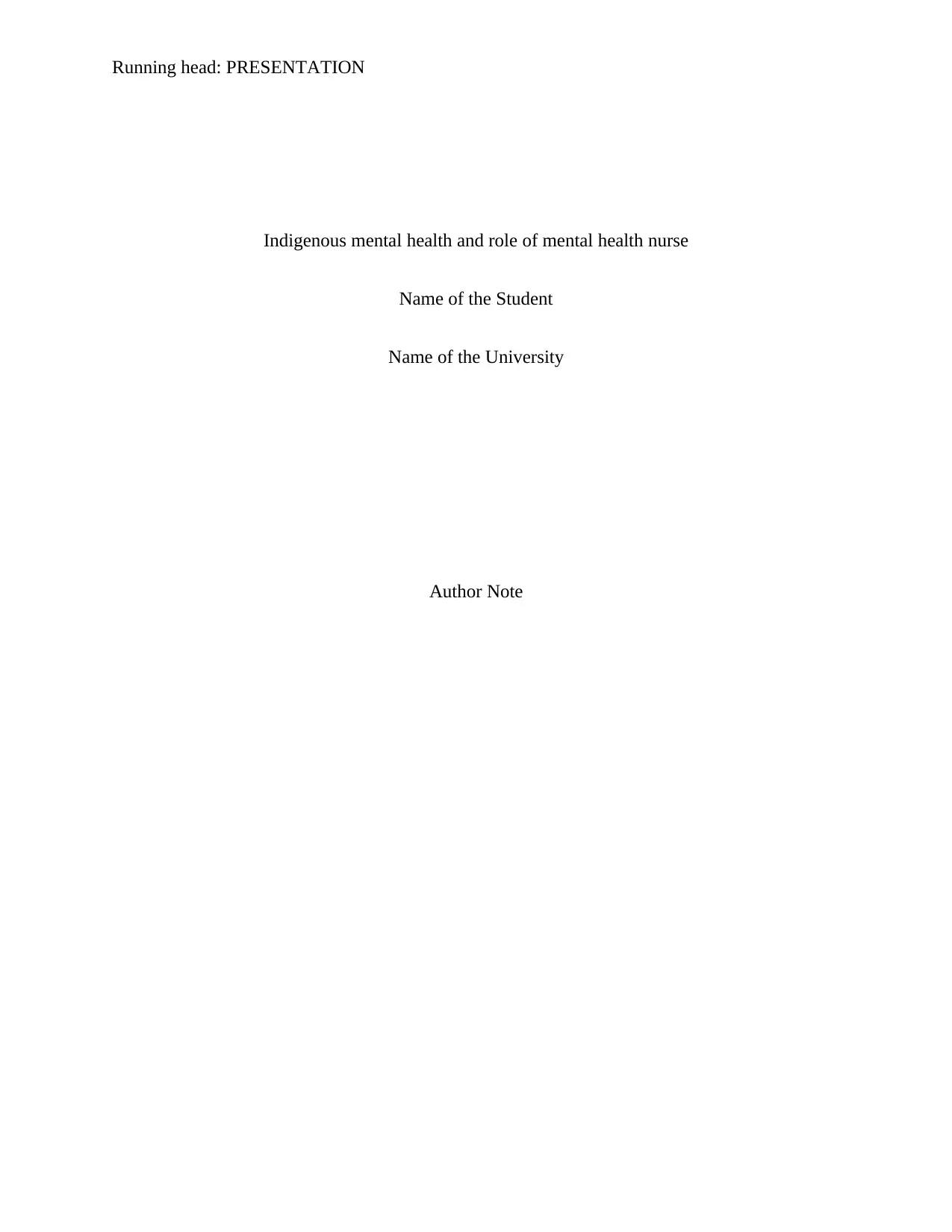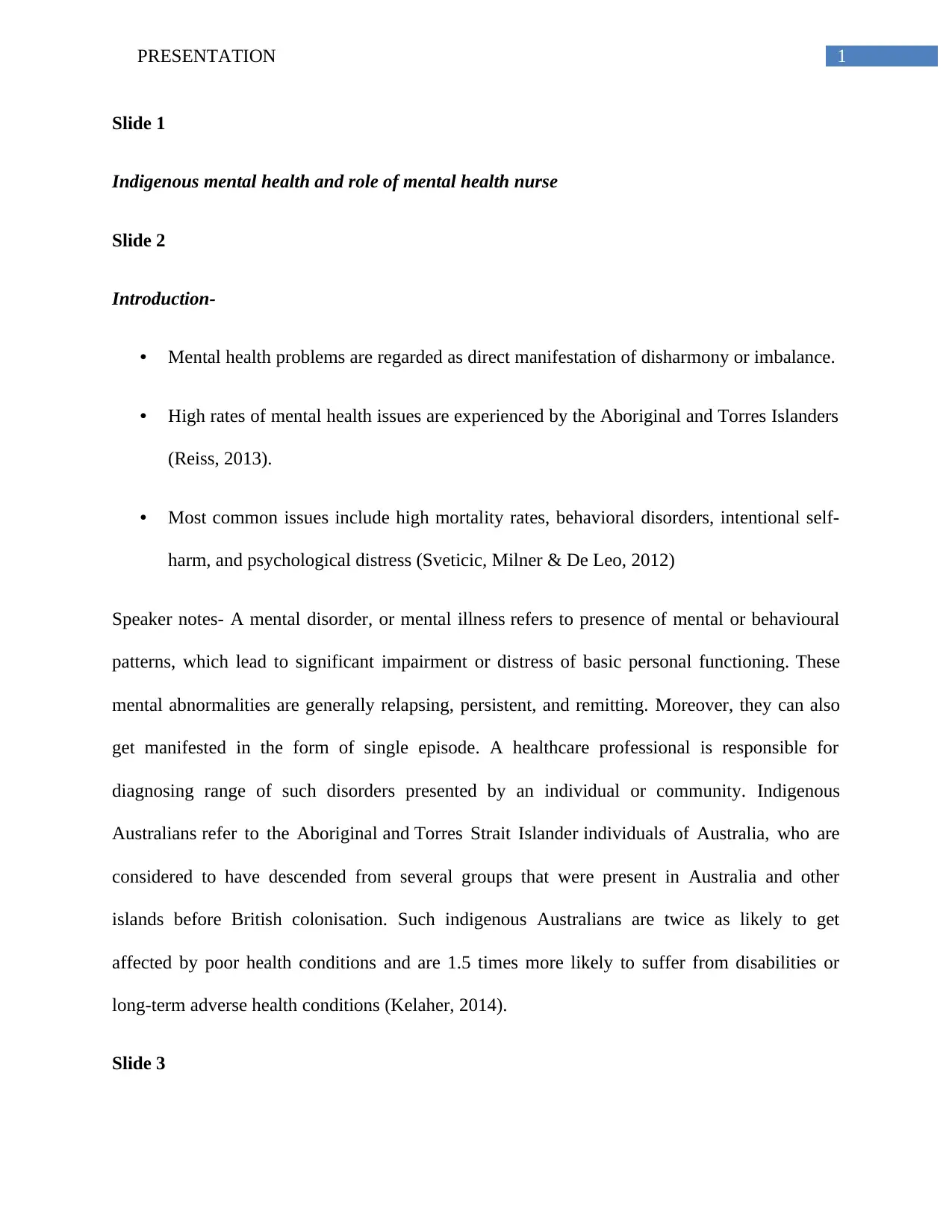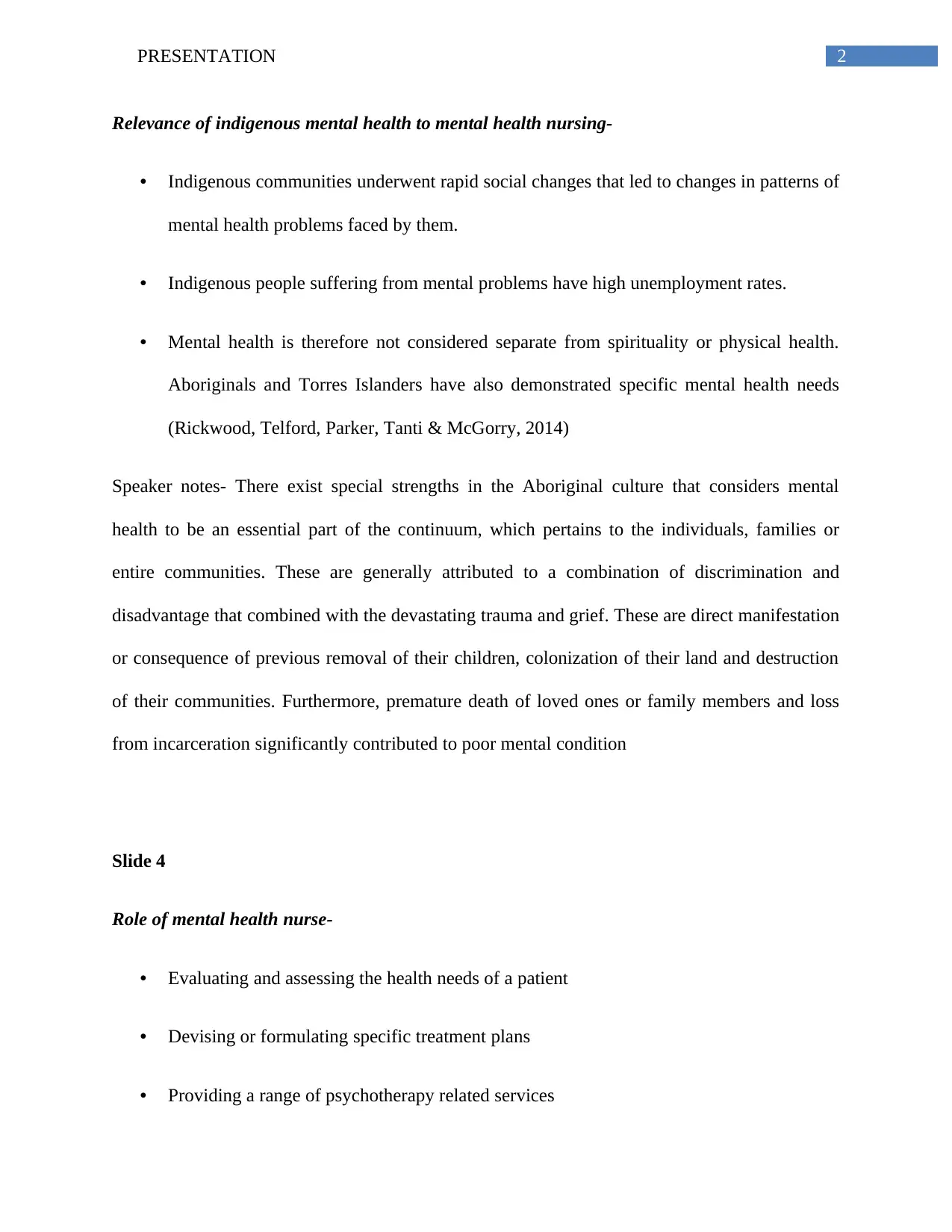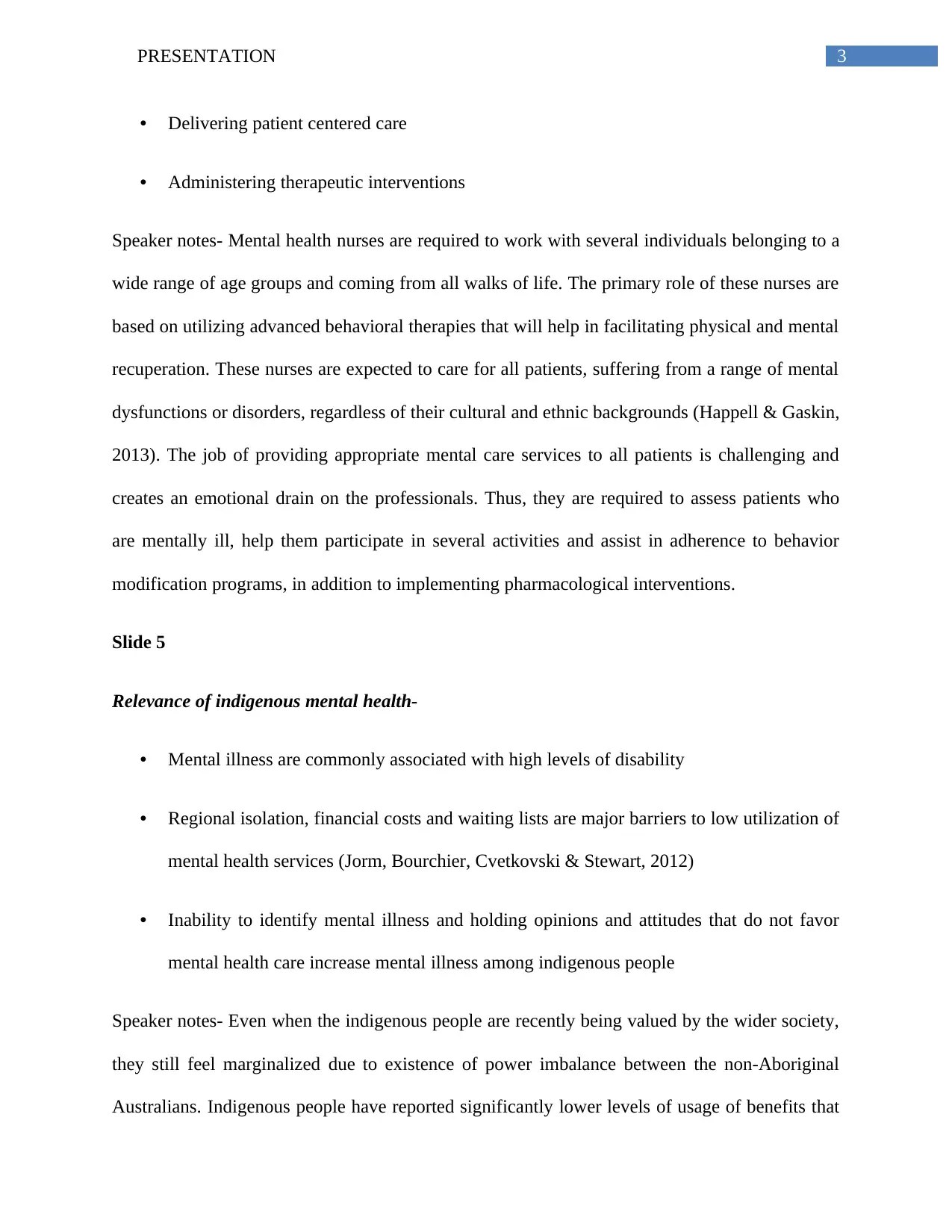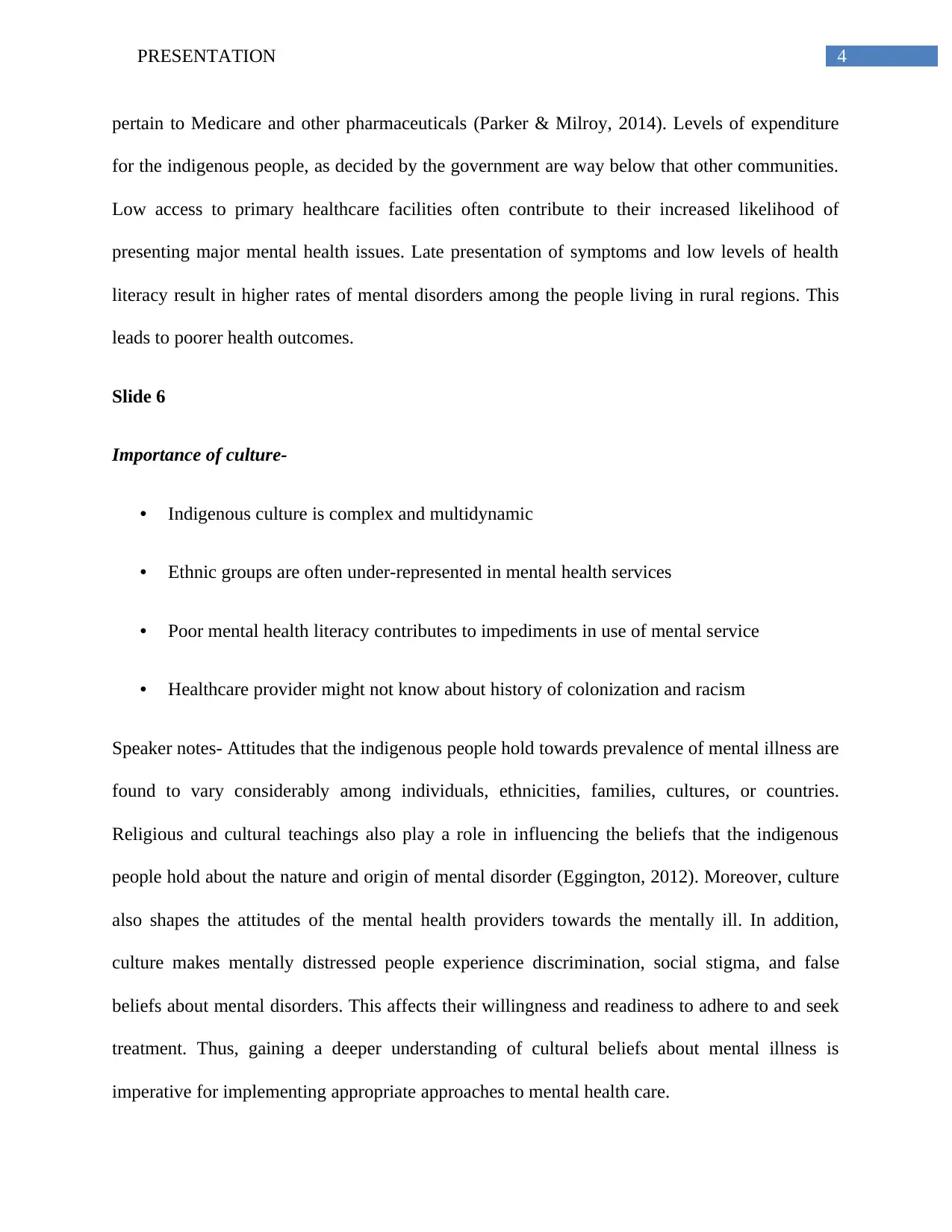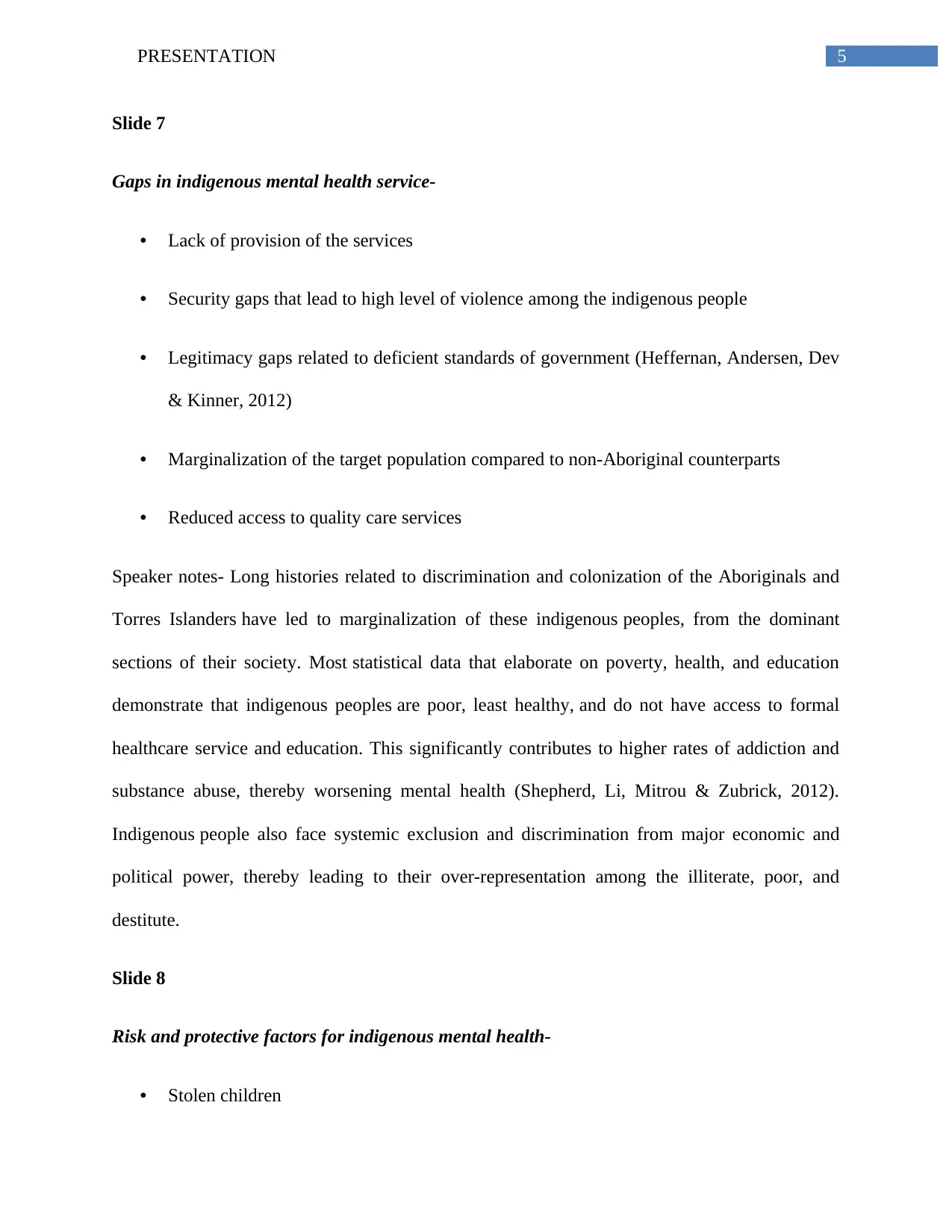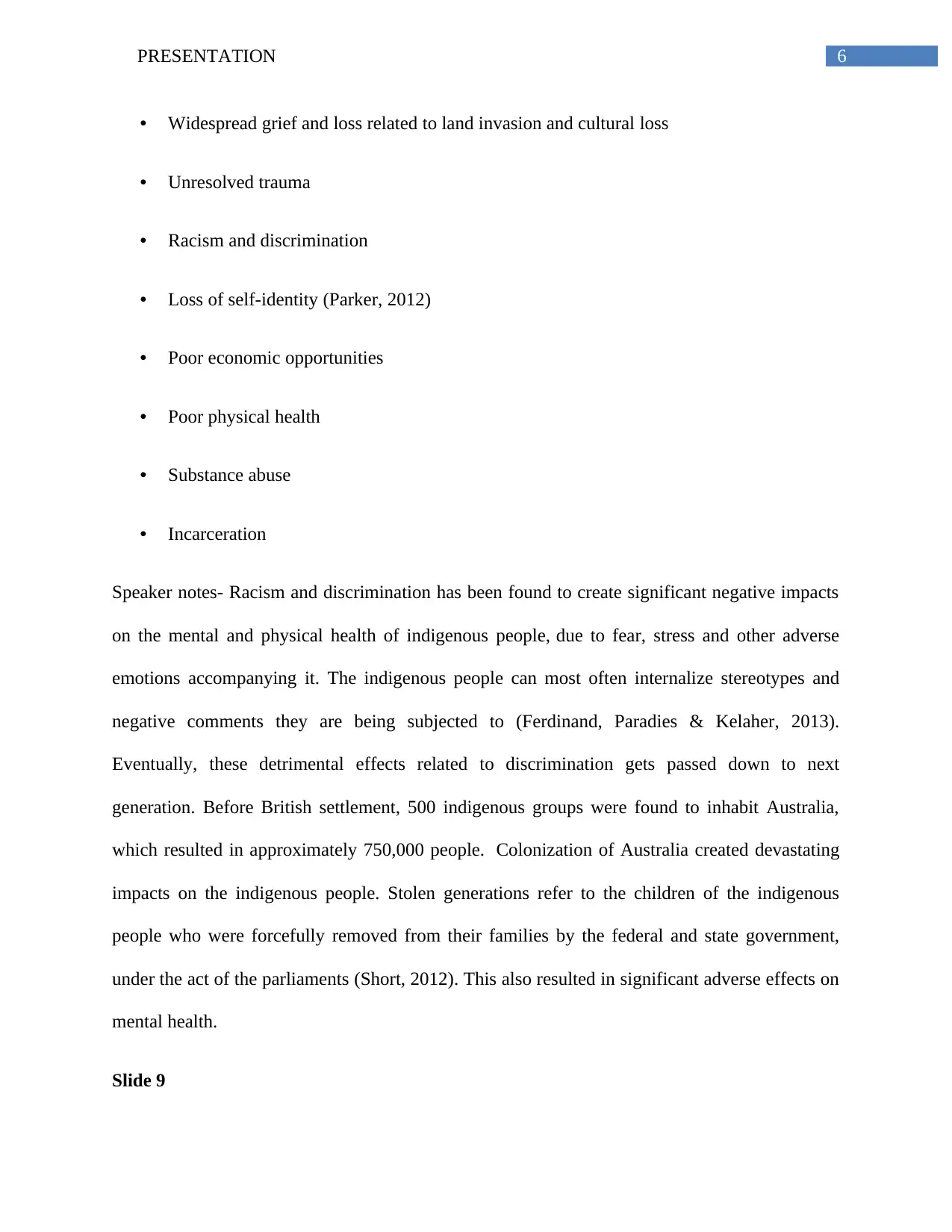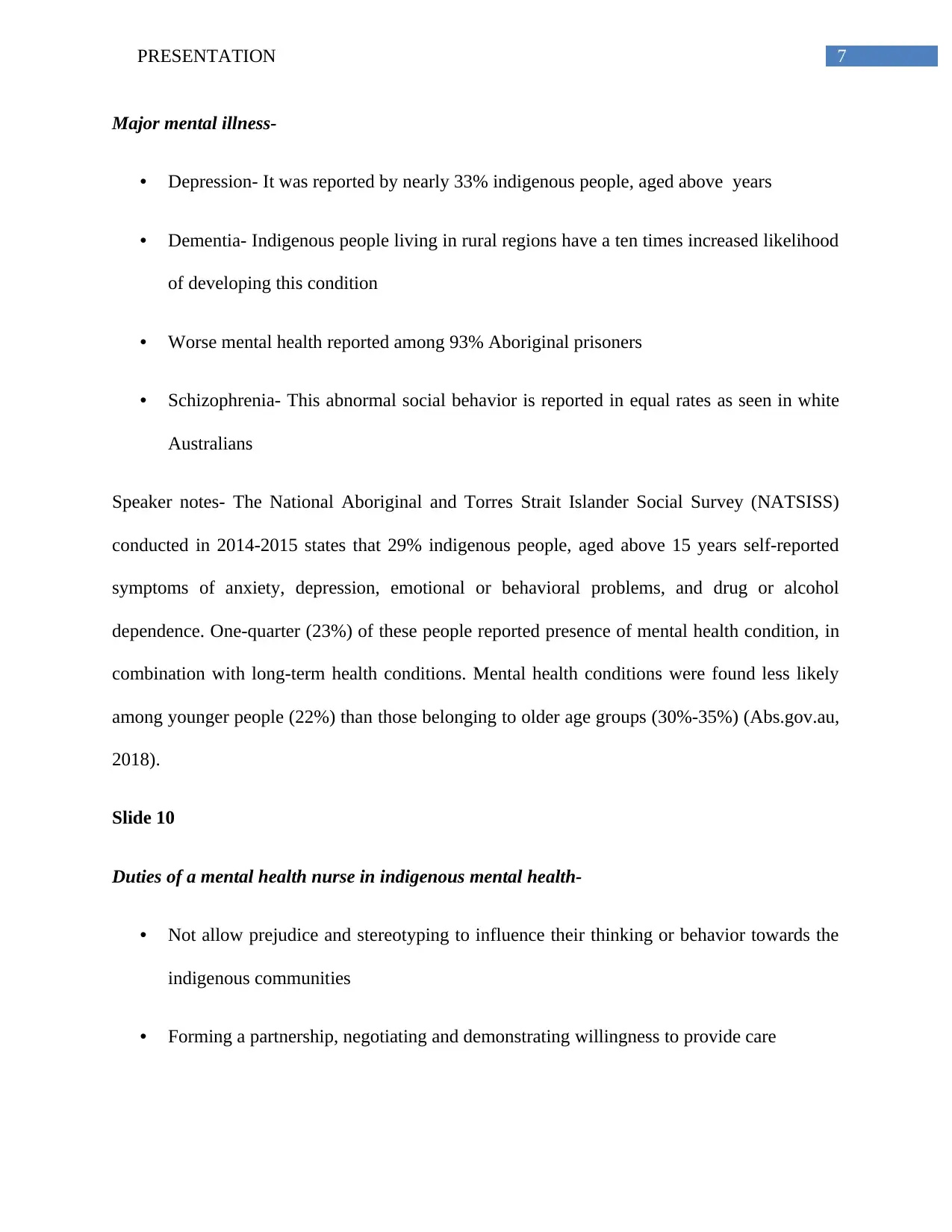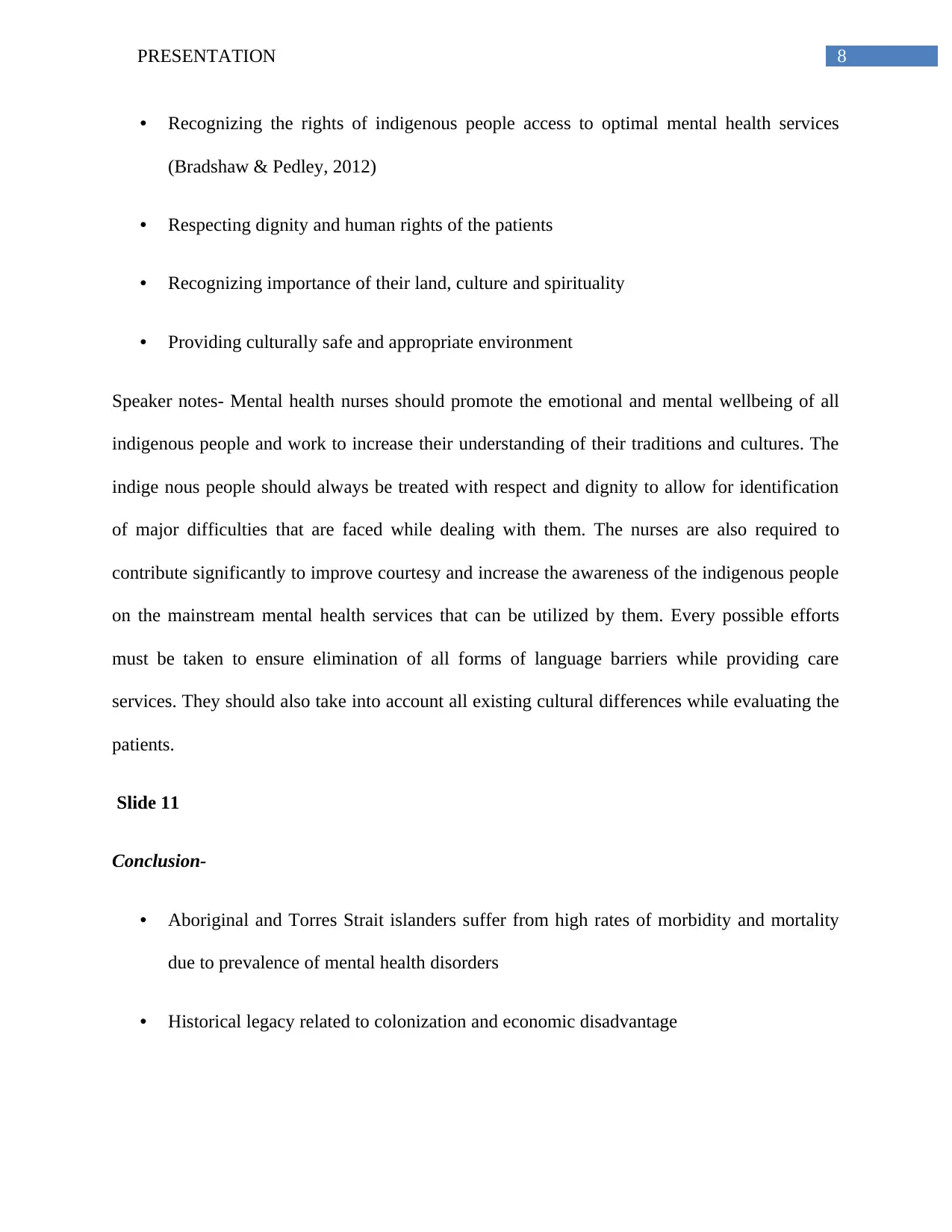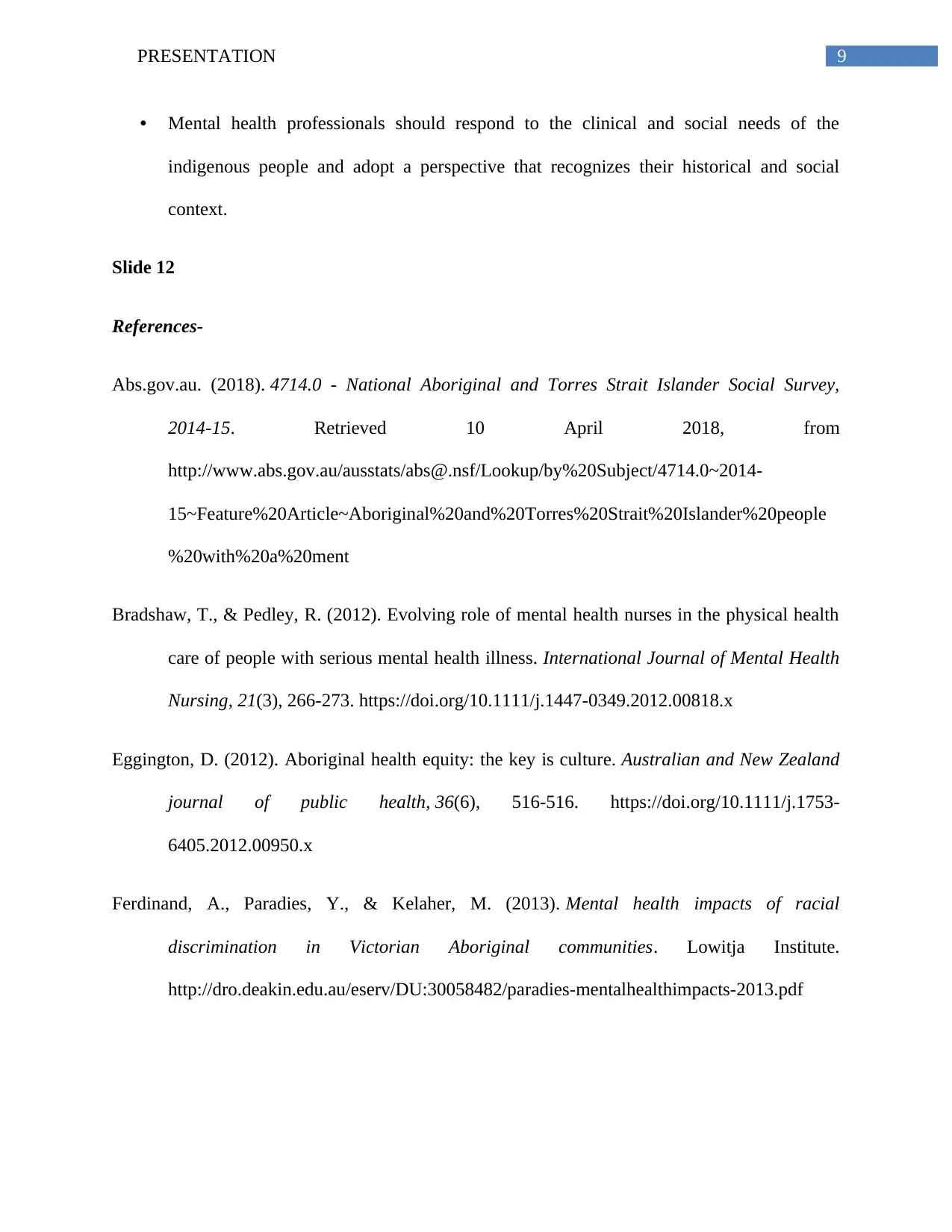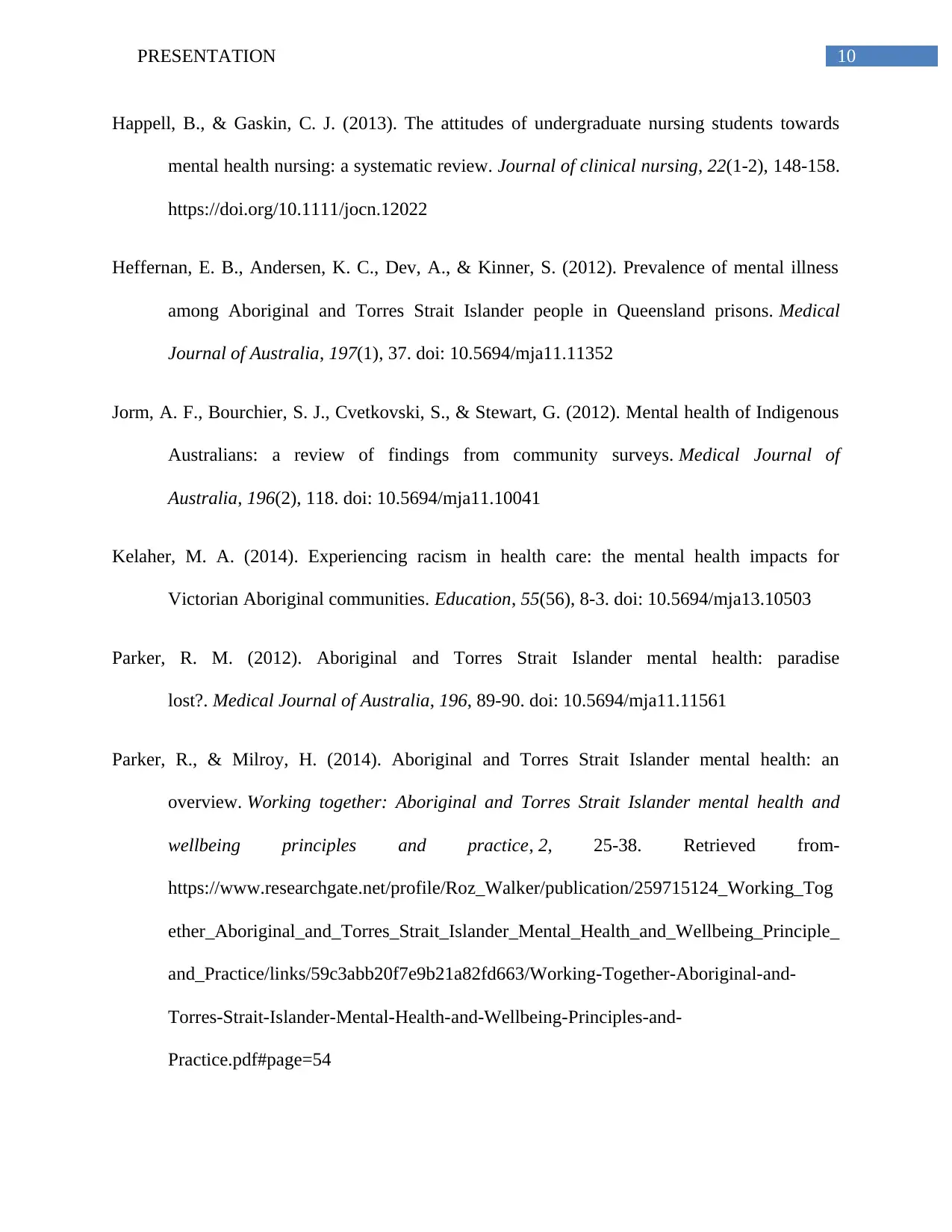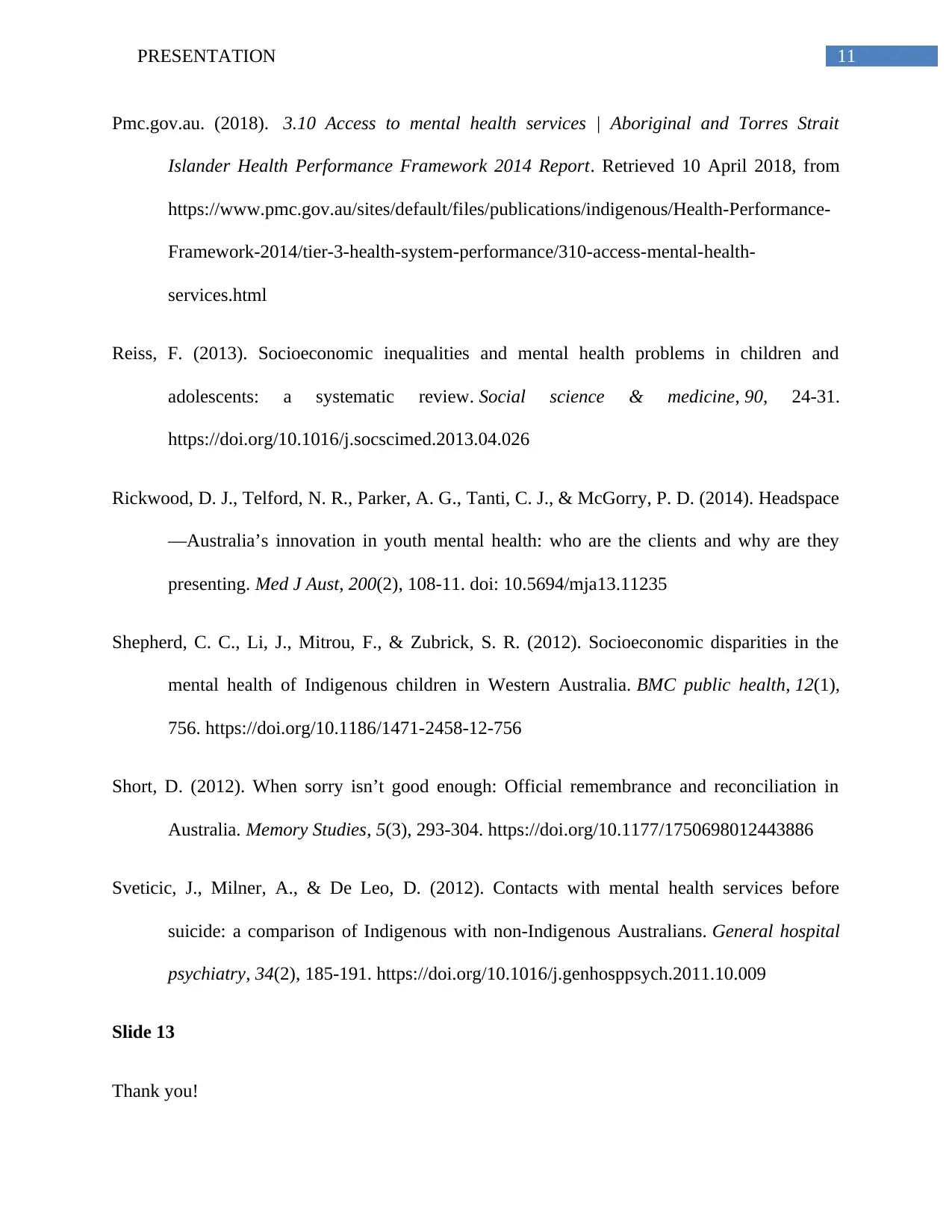This presentation discusses the relevance of indigenous mental health to mental health nursing, the role of mental health nurse, gaps in indigenous mental health service, and risk and protective factors for indigenous mental health. Mental health problems are regarded as direct manifestation of disharmony or imbalance. High rates of mental health issues are experienced by the Aboriginal and Torres Islanders. Most common issues include high mortality rates, behavioral disorders, intentional self-harm, and psychological distress. Mental health nurses are required to work with several individuals belonging to a wide range of age groups and coming from all walks of life. The primary role of these nurses are based on utilizing advanced behavioral therapies that will help in facilitating physical and mental recuperation. Racism and discrimination has been found to create significant negative impacts on the mental and physical health of indigenous people, due to fear, stress and other adverse emotions accompanying it. The indigenous people can most often internalize stereotypes and negative comments they are being subjected to. Mental health professionals should respond to the clinical and social needs of the indigenous people and adopt a perspective that recognizes their historical and social context.
![[object Object]](/_next/static/media/star-bottom.7253800d.svg)
![[object Object]](/_next/static/media/star-bottom.7253800d.svg)
